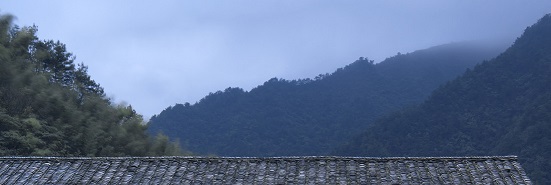The “Ten Ox Pictures” (十牛圖) is an ancient Zen teaching (going back almost 1,000 years). This teaching makes use of ten pictures (only four of which actually show the ox, by the way) to describe the Path of Zen. Accompanying each picture is a little poem. There are several different versions of the poems and even more versions of the pictures. I personally like the poems by 廓庵則公 (Kuoan Zegong). His poems have a very simple structure – each has four lines consisting of seven characters each.
The very first line of the first poem is:
忙忙撥草去追尋
This literally translates, character by character, to “busy busy pulling grass go chase search.” What does this mean?
There is nowhere else to start. There is only right here, right now. The mind just as it is – this “busy busy” mind – this is our starting place. And it is also, already, the Pure Buddha Land. So there is also nowhere else to go.
I like what Ruben Habito has to say about the first Ox Picture/Poem:
In this first stage there is already a kind of awakening, namely, to a mind that asks fundamental questions. This is called “arrival at the Bodhi-mind,” or the mind of awakening. One is unsettled, asking “Who am I?” “How can I live my life in a way that is truly meaningful?” or “What is the meaning of all this?” Before arriving at this stage, perhaps we had been “asleep” many years, taking things in life for granted.
[https://terebess.hu/english/oxherd0.html#Habito]
Interestingly, the same phrase “忙忙” is also found in the following verse from the collection of Chinese aphorisms called “Zen Sand”:
業 識 忙 忙 那 伽 大 定
Victor Sogen Hori translates the first part, 業 識 忙 忙, as “the turmoil of consciousness”, which is none other than (the second part) “the Great Dragon Samadi” (那 伽 大 定).
And here is a little poem written on this subject by Master Kuoan (廓庵), who lived sometime around the 12th century AD:
從來不失,何用追尋?
由背覺以成疏,在向塵而遂失。
家山漸遠,歧路俄差。得失熾然,是非蜂起。
從來 = from the past until the present; all along; ever; never
不 = not
失 = loose/lost
何 = what?
用 = use/utility
追尋 = pursue
There is nothing that has ever been lost, so what is the use of searching?
由 = cause, reason, because of, via, through
背 = leave, depart from
覺 = awaken to, realize
以 = therefore
成 = succeed, accomplish
疏 = neglect, alienate
,
在 = exist, be alive, be at
向 = toward;
塵 = dust, footprint, “the world”
而 = and
遂 = accomplish
失 = loose, lost
。
And yet we do manage to lose our original mind when we look out upon this external world of things and try to embrace it.
家山漸遠,歧路俄差。得失熾然,是非蜂起。
家山 = home mountain, that is, rural home town up in the mountains, where we originally came from before descending down to the cities of the plain
漸 = gradually
遠 = distant, remote, far away
,
歧路 = a small road that branches off the main road
俄 = suddenly, soon, presently
差 = wrong, mistake
。
得失 = dé-shī = gain and loss
熾然 = chì-rán = blazing fire
,
是非 = right and wrong
蜂起 = swarming like bees
。
Gradually our original home fades in the distance and suddenly we are lost among the myriad branching paths. Now we have entered the blazing fire of gain and loss, and also the forest of right and wrong where the leaf of every tree stings like a bee.

